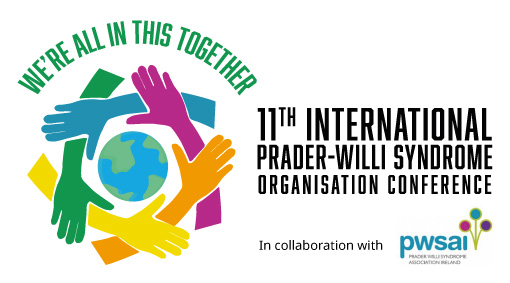PWS Research Update

Below is a summary of some recently published PWS-related research.
Source: fpwr.org
Vision problems in those with PWS
Issues with vision can be very prevalent among people with PWS, however, there has not been a great deal of data published to date. Recent results of a study based on data from the Global PWS Registry on vision impairments in those with PWS has been published. The study involved a survey of more than 900 participants. Its main findings showed that rates of strabismus (deviated eye or cross eyed) were much higher than the typical population (40% compared to 2-3%). PWS genetic sub-type or growth hormone therapy status had no impact on the rate of strabismus.
Rates of farsightedness (inability to see things clearly up close) in PWS were also higher (25% compared to <10%). Rates of lazy eye (where one eye strongly dominates vision) was found to be 16% in those with PWS compared to approx. 2% in the typical population.
Oxytocin, stress behaviours and hyperphagia
Oxytocin is known as the love hormone but in those with PWS and other conditions where high anxiety is characteristic, oxytocin, or the lack of it, is thought to drive stress behaviours. There are currently several clinical trials involving oxytocin or analogues of oxytocin worldwide. A full overview of oxytocin trials can be found in the January 2020 edition of Laneway.
Levo Therapeutics has recently completed its trial of LV-101, an intranasal form of carbetocin which is an analogue of oxytocin. Phase 2 and 3 trials showed meaningful improvements in hyperphagia (excessive eating from excess hunger or increased appetite) and associated behavioural symptoms in those with PWS. LV-101 is positioned to become the first potential PWS treatment in more than two decades to complete a New Drug Application review. A decision about approval in the USA is expected before the end of the year.
The Destiny (DCCR) trail
The DESTINY trial being run by Soleno Therapeutics is testing Diazoxide Choline Controlled-Release (DCCR) for hyperphagia suppression in PWS. Diazoxide works by blocking two proteins in the brain which are believed to drive hyperphagia seen in PWS (DCCR trial). DCCR is what is known as an orphan drug and is one that has been reprocessed and reformulated for this trial. In its original formulation diazoxide is used to treat chronic low blood sugar and, for this use has some reported side effects, including loss of appetite (beneficial in the case of PWS), stomach upset and changes in sense of taste, not to mention elevated blood sugars. In the extended trials so far conducted, there have been no reported adverse side effects. The most recent results show a significant improvement in hyperphagia and stress behaviours for those on the DCCR trial.
Genetics of PWS
The Foundation of Prader Willi Research (FPWR) has launched the PWS Genome Project which is mapping 50 PWS genomes. The study will identify genetic variants that influence the risk and severity of symptoms, and in the long term, will help the understanding of how DNA variants impact response to different treatments for PWS. This work is an extension of the Global PWS Registry study.
Sleep Apnoea and growth hormone
In a recently published study, Australian researchers have found an increase in moderate/severe obstructive sleep apnoea in a subgroup of patients once they start growth hormone. The results lend support to the current advice to perform follow up sleep studies in children with PWS after starting growth hormone treatment.
Upcoming conferences
11th International Prader Willi Syndrome Organisation Conference – 6-10 July 2022, Limerick, Ireland
Held every 3 years, this event is for all those affected by PWS and those helping to improve the lives of those with the condition. The conference has many themes, including a clinical and scientific programme; a parent’s programme; a symposium for adults with PWS; a children’s programme and a new interdisciplinary programme which will focus on the holistic treatment and support of those with PWS. For more details see 11th IPWSO Conference.

